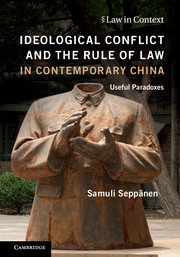Book contents
- Frontmatter
- Dedication
- Contents
- Foreword
- Preface and acknowledgments
- 1 Introduction
- 2 Setting the stage
- 3 Ideological cynicism meets theoretical skepticism
- 4 Useful paradoxes: the conservative socialist ideological position
- 5 Thick mainstream, thin liberalism and vice versa
- 6 Avant-garde renewal and nostalgia
- 7 Conclusions
- Textbook answers to the questions in Chapters 1–6
- Bibliography
- Index
4 - Useful paradoxes: the conservative socialist ideological position
Published online by Cambridge University Press: 05 July 2016
- Frontmatter
- Dedication
- Contents
- Foreword
- Preface and acknowledgments
- 1 Introduction
- 2 Setting the stage
- 3 Ideological cynicism meets theoretical skepticism
- 4 Useful paradoxes: the conservative socialist ideological position
- 5 Thick mainstream, thin liberalism and vice versa
- 6 Avant-garde renewal and nostalgia
- 7 Conclusions
- Textbook answers to the questions in Chapters 1–6
- Bibliography
- Index
Summary
“The Three Supremes” means:
A.The supremacy of the Party's cause, the supremacy of the interests of the masses, and the supremacy of the sanctity of the law.
B.The supremacy of the Party's cause, the supremacy of the People's interests, and the supremacy of the constitution, laws and regulations.
C.The supremacy of the People's cause, the supremacy of the interests of the masses, and the supremacy of the sanctity of the law.
D.The supremacy of the Party's cause, the supremacy of the interests of the people, and the supremacy of the constitution and the laws.
– Preparatory Material for the Public Examination for the Recruitment of Provincial (City and County) Level Public Institution Staff, 20.Introduction
This chapter continues the analysis of the conservative socialist ideological position and its relationship to liberal legal thought. The chapter's specific aim is to demonstrate that paradoxical and otherwise implausible statements about the rule of law may be both constitutive of and useful for an ideological project. As the starting point of this argument, this chapter seeks to reassess the perception that the Chinese leadership approaches law in an instrumentalist manner. By instrumentalism most students of China do not refer to the adjudicative theory according to which law is a means to an end. This kind of instrumentalism was, of course, central to the development of twentieth-century legal thought. “Law as a means to end” connoted the proposition that the empirical analysis of society should influence the legal ought. In China, the approach has been popularized by Zhu Suli's neoconservative legal thought, which seeks to justify a pragmatist approach to adjudication in China. In contrast to this adjudicative theory of instrumentalism, in foreign studies of Chinese law instrumentalism generally refers to those ideological conceptions that concern the relationships between the legal system and other parts of society rather than the form of legal thought within the legal system. In this sense, instrumentalism signifies an ideological conception that regards legal norms and processes not as the final arbiters of social choices, but as tools to implement decisions that emerge from other, supposedly more legitimate sources of normativity, such as the decision-making processes within the Communist Party.
- Type
- Chapter
- Information
- Ideological Conflict and the Rule of Law in Contemporary ChinaUseful Paradoxes, pp. 72 - 103Publisher: Cambridge University PressPrint publication year: 2016



